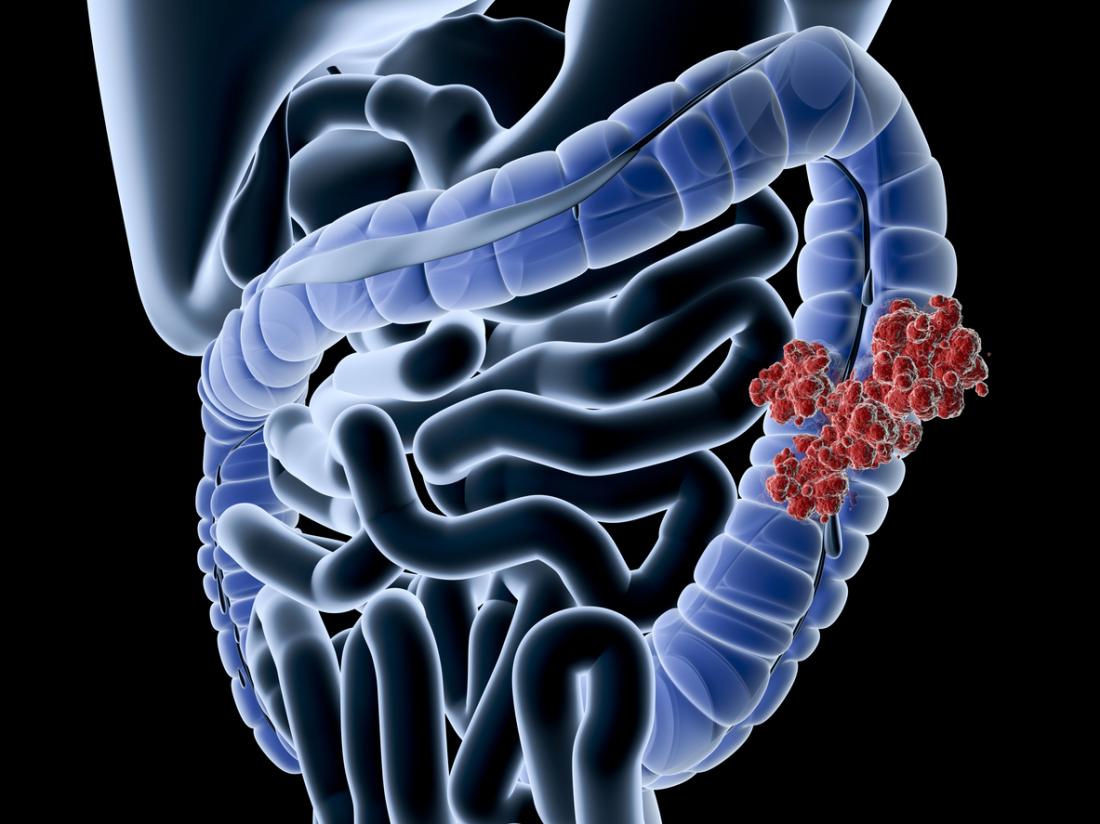Source: Medical College of Georgia at Augusta University Jan 23, 2019 6 years, 3 months, 2 days, 19 hours, 59 minutes ago
Lingering inflammation in the colon is a known risk factor for colorectal cancer and now scientists report one way it resets the stage to enable this common and often deadly cancer.
Inflammation is supposed to be a short-term response to an infection or other irritant in the body that is essential to eliminating it. But when inflammation persists, it can contribute to a myriad of common conditions, from cancer to cardiovascular disease.
In their quest to determine just how chronic inflammation of our large intestines, or colon, enables cancer, a scientific team led by Dr. Kebin Liu at the Medical College of Georgia and Georgia Cancer Center at Augusta University has found it turns one more protective mechanism against us and silences another.
The pathway to cancer they delineated in the journal
Cell Reportsgoes like this: The chronic inflammation of ulcerative colitis prompts high levels of myeloid-derived suppressor cells, or MDSCs, to accumulate in the colon. High levels of MDSCs, in turn, produce higher levels of IL-10, a cytokine known to suppress inflammation. But at this high level, the function of IL-10, like the environment in the colon, changes. IL-10 instead activates STAT3, a protein that works as a gene regulator, which in turn increases expression of two genes -- DNMT1 and DNMT3b -- in the colon. These genes alter the DNA of and ultimately silence a tumor suppressor called interferon regulator factor 8, or IRF8.
Liu notes that the pathway they found that ends with silencing IRF8, likely is not a factor for non-colitis associated colon cancer.
Next steps include finding ways to inhibit high expression of IL-10 in the colon.
"IL-10 has a dual function. It can either be promoting or interfering with an immune response," says Liu in a phone interview with
Thailand Medical News."What we found here is IL-10 promotes colon
cancer."
In a healthy state, IL-10 and IRF8 have no known interaction but both work in different ways to protect against invaders, says Liu, a cancer immunologist in the MCG Department of Biochemistry and Molecular Biology.
The scientists set out to look at whether and how the two are connected in a chronically inflamed colon and test the hypothesis that IRF8 functions as a colorectal cancer suppressor.
They created a mouse missing IRF8 in the epithelial cells that line the colon and found plenty of evidence to support their hypothesis. The mice were much more susceptible to chronic inflammation, had less normal cell death in this high-cell turnover area and got more tumors. They also found that in the face of chronic inflammation, IRF8 is silenced, and that in human cancer, IRF8 is downregulated compared to normal colon tissues.
Meanwhile, they showed that in this altered environment, MDSCs and the IL-10 they produce were at higher levels and so were the two genes that ultimately silence IRF8. They found the same shifts in human colon cancer.
Liu says it's likely the high levels and timing that transform the role of IL-10 from suppressor of inflammation to suppressor of IRF8.
Colorectal cancer is among the top five common
cancers and causes of cancer death in men and women in the United States, according to the Centers for Disease Control and Prevention.
Interleukin 10, or IL-10, is a cytokine, or signal that influences the behavior of nearby cells. It's known to suppress chronic inflammation, including inflammation-driven colitis and colorectal cancer. It has even known to suppress other cells cancer might commandeer like regulatory T cells, or Tregs, which can suppress an antitumor response.
IRF8 is a transcription factor, which means it helps regulate the activity of genes, and it plays an important role in the differentiation of red blood cells. It's normally expressed by the epithelial cells that line the colon as a layer of protection against the food and drink we put in our mouths.
MDSCs, are at low levels in most healthy people, and are adept at helping protect us from invaders, producing immune cells like macrophages, as well as IL-10. Like inflammation, MDSCs should be on the scene and active just until the problem is eliminated. But when chronically stimulated, like in chronic inflammation and cancer, they work instead to suppress the immune system.
Colitis is when the colon's lining becomes chronically inflamed and its important barrier function gets compromised by the increased number of immune cells that have moved in, likely in response to the immune system inexplicably recognizing common things like food and commensal bacteria in the gut as invaders.
Colitis affects males and females alike, often surfaces in the 30s, and can run in families. Symptoms of colitis include loose and more urgent bowel movements, diarrhea, abdominal pain and blood in the stool, according to the Crohn's & Colitis Foundation. Patients may have a loss of appetite, weight and energy.
Reference:Mohammed L. Ibrahim, John D. Klement, Chunwan Lu, Priscilla S. Redd, Wei Xiao, Dafeng Yang, Darren D. Browning, Natasha M. Savage, Phillip J. Buckhaults, Herbert C. Morse, Kebin Liu. Myeloid-Derived Suppressor Cells Produce IL-10 to Elicit DNMT3b-Dependent IRF8 Silencing to Promote Colitis-Associated Colon Tumorigenesis. Cell Reports, 2018; 25 (11): 3036 DOI: 10.1016/j.celrep.2018.11.050
Read also about how how gut bacteria signatures can help differentiate between IBS and IBS at https://www.thailandmedical.news/news/new-study-in-differences-in-gut-bacteria-will-soon-result-in-a-database-that-can-distinguish-ibd-from-ibs
